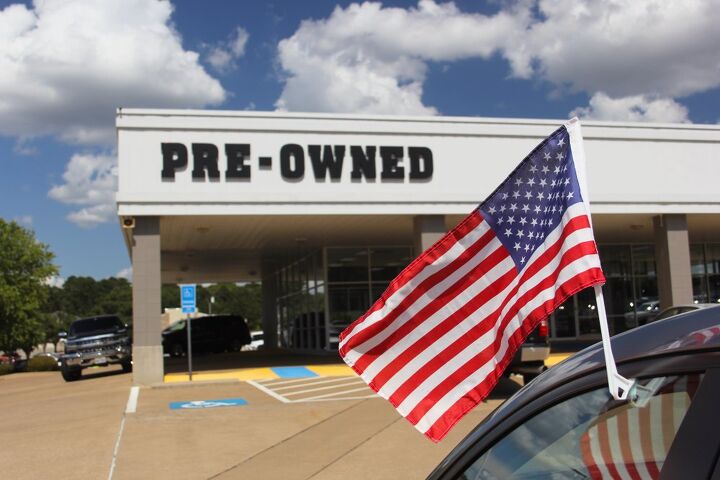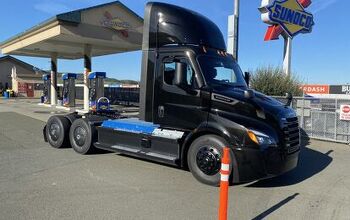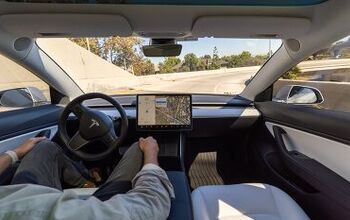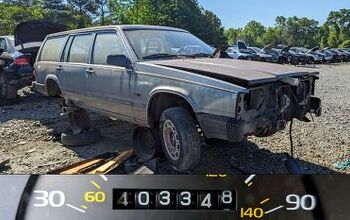Auto Sales Officially Considered 'Essential Service' by U.S. Government

Updated social distancing guidance released by the Department of Homeland Security’s Cybersecurity and Infrastructure Security Agency (CISA) on Friday indicates the automotive industry is now an essential business.
Version 3.0 (for those keeping count) of what constitutes “essential critical infrastructure workers” added a number of job descriptions as the federal government mulls how to restart the U.S. economy. Among them is pretty much every job related to automotive manufacturing and sales.
Initially, only those providing vehicular maintenance were deemed essential. But the category has since expanded to include “workers critical to the manufacturing, distribution, sales, rental, leasing, repair, and maintenance of vehicles and other transportation equipment (including electric vehicle charging stations) and the supply chains that enable these operations to facilitate continuity of travel-related operations for essential workers.” The text has grown similarly broad for those in the shipping and taxi industries, basically giving everyone the green light to return to work if their business has anything to do with transportation.
Automotive News suggested the alterations may be in response to various trade organizations dropping overt hints as their respective sectors engage in little to no commerce amid the coronavirus pandemic:
The announcement follows intensive lobbying efforts from auto trade groups — including the National Automobile Dealers Association and American Truck Dealers, American International Automobile Dealers Association, National Independent Automobile Dealers Association and National Association of Minority Automobile Dealers, as well as the Alliance for Automotive Innovation — which sent letters to the White House asking President Donald Trump to clarify that certain sales and leasing activities at dealerships are considered essential services.
Initial guidelines from the agency released in mid-March listed vehicle manufacturing, supply manufacturing, maintenance and repair facilities as essential but made no reference to vehicle sales and leasing operations. Car rental and leasing employees were added on March 28.
Of course, there’s nothing requiring states to follow such guidelines. Homeland Security is pretty clear that local governments should always act in accordance with their own needs.
“This list is advisory in nature. It is not, nor should it be considered, a federal directive or standard. Additionally, this advisory list is not intended to be the exclusive list of critical infrastructure sectors, workers, and functions that should continue during the COVID-19 response across all jurisdictions. Individual jurisdictions should add or subtract essential workforce categories based on their own requirements and discretion,” explained CISA Director Christopher Krebs.
“The advisory list identifies workers who conduct a range of operations and services that are typically essential to continued critical infrastructure viability, including staffing operations centers, maintaining and repairing critical infrastructure, operating call centers, working construction, and performing operational functions, among others. It also includes workers who support crucial supply chains and enable functions for critical infrastructure.”
[Image: LM Photos/Shutterstock]

A staunch consumer advocate tracking industry trends and regulation. Before joining TTAC, Matt spent a decade working for marketing and research firms based in NYC. Clients included several of the world’s largest automakers, global tire brands, and aftermarket part suppliers. Dissatisfied with the corporate world and resentful of having to wear suits everyday, he pivoted to writing about cars. Since then, that man has become an ardent supporter of the right-to-repair movement, been interviewed on the auto industry by national radio broadcasts, driven more rental cars than anyone ever should, participated in amateur rallying events, and received the requisite minimum training as sanctioned by the SCCA. Handy with a wrench, Matt grew up surrounded by Detroit auto workers and managed to get a pizza delivery job before he was legally eligible. He later found himself driving box trucks through Manhattan, guaranteeing future sympathy for actual truckers. He continues to conduct research pertaining to the automotive sector as an independent contractor and has since moved back to his native Michigan, closer to where the cars are born. A contrarian, Matt claims to prefer understeer — stating that front and all-wheel drive vehicles cater best to his driving style.
More by Matt Posky
Latest Car Reviews
Read moreLatest Product Reviews
Read moreRecent Comments
- Kwik_Shift_Pro4X The dominoes start to fall...
- IBx1 Get the standard established, then stop building the chargers while you let others license the design from you to build more stations with your standard disgusting
- IBx1 “Dare to live more”-company that went from making the Countach and Diablo to an Audi crossover with an Audi engine and only pathetic automatic garabge ”live mas”-taco bell
- Pianoboy57 Not buying one of these new when I was a young guy was a big regret. I hated the job I had then so didn't want to commit to payments. I did own a '74 Corona SR later for a short time.
- FreedMike This wasn’t unpredictable. Despite what the eV HaTerZ kLuBB would like you to believe, EV sales are still going up, just not as quickly as they had been, but Tesla’s market share is down dramatically. That’s the result of what I’ve been saying for a long time: that the competition would eventually start catching up, and that’s exactly what’s happening. How did this happen? It boils down to this: we’re not back in 2019 anymore. Back then, if you wanted an EV that wasn’t a dorky looking ecomobile like a Leaf or Bolt, it was pretty much Tesla or bust, and buyers had to deal with all the endemic Tesla issues (build quality problems, bizarre ergonomics, weird styling, and so forth). That’s not the case today – there is a ton of competition, and while these newer models aren’t quite there when it comes to EV tech, they’re getting closer, and most of the Tesla weirdness just doesn’t apply. And then there’s this: stale product is the kiss of death in the car biz, and aside from the vanity project known as Cybertruck, all of Tesla’s stuff is old now. It’s not as “bleeding edge” as it used to be. For a company that made its’ bones on being on the forefront of tech, that’s a big problem.I don’t think Tesla is out of the game – not by a long shot. They’re still the market leader by a very wide margin, and their EV tech is the best in the game. But they need to stop focusing on stuff like the Cybertruck (technically fascinating, but it’s clearly an Elon Musk ego trip), the money/talent suck that is FSD, and the whole robotaxi thing, and put product first. At a minimum, everything they sell needs a very heavy refresh, and the entry level EV is a must.


































Comments
Join the conversation
It's about time this country gets moving again and we try and repair what had been the best economy in decades, if not ever. Remember all the economic damage done in your state by your Democrat governors when you go into the voting booth.
Dealerships here in BC never closed. Many reduced hours or went to appointment only but you could alaways buy a new car.